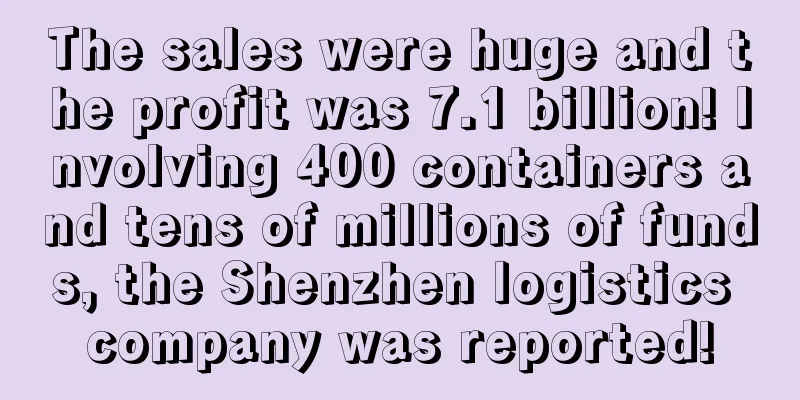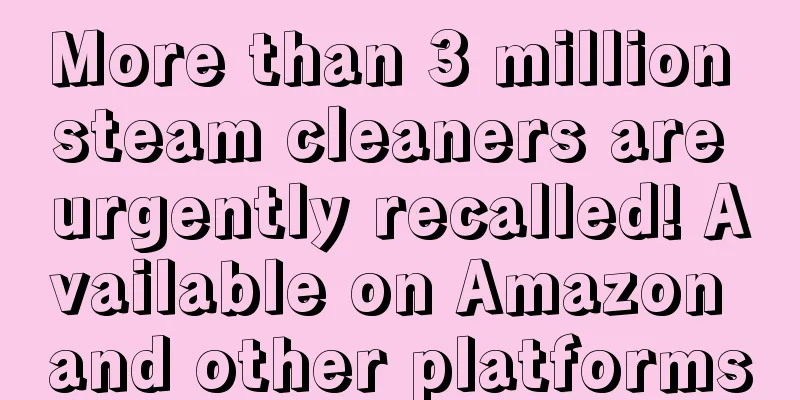▶ Video account attention cross-border navigation It is learned that the securities documents submitted by Amazon recently showed that the new CEO Andy Jassy received compensation worth approximately US$212 million in 2021, and his base salary was US$175,000. Most of the compensation came from huge stock rewards he received after taking over Amazon.
It is reported that the median salary of Amazon's global employees in 2021 is US$32,855. In comparison, Jassy's salary is about 6,474 times that of Amazon's employees. The high salary is of course inseparable from the "contribution" of the sellers. Compared with the lucrative status of Amazon's CEO, the performance of many sellers has been quite unsatisfactory in recent times, with orders declining repeatedly. The epidemic is a very important reason. Due to the need for control, cross-border logistics have been frequently impacted, and many sellers are facing the threat of out-of-stock due to port closures and reduced shipping capacity. In addition, it has also caused a series of negative chain reactions. However, there are also some big sellers who have seized the business opportunities due to the epidemic and signed orders worth tens of billions. And just recently, the big seller announced that there has been new progress in this sky-high transaction. Jiuan Medical received another 4.1 billion yuan in payment On January 13, 2022, a subsidiary of iHealth Medical and the U.S. Department of Health and Human Services, represented by the U.S. ACC, signed a "Purchase Contract" for the iHealth COVID-19 Antigen Home Self-Test OTC Kit, selling 250 million iHealth kits to it, with a total contract price and tax of US$1.275 billion. ▲ The picture comes from Jiuan Medical’s announcement As the epidemic situation in the United States became increasingly severe, on January 26, the two parties signed an "Amendment Contract" for the original "Purchase Contract". On the basis of the original contract, the two parties added approximately 104 million doses of iHealth test kit products to the original contract. The total contract price and tax amount increased by nearly US$500 million, and the total amount increased to approximately US$1.775 billion. On March 11, iHealth issued an announcement stating that the delivery obligations under the above contract had been fully fulfilled and that US$465 million in payment had been received. As of March 30, ACC has successively paid a total of US$645 million, or about RMB 4.1 billion, to subsidiaries of iHealth. Currently, iHealth has received a total of US$1.11 billion, or about RMB 7.1 billion. In the first three quarters of last year, iHealth's performance was once cold, with a net loss of 24.775 million, a sharp drop of 106.89% from the previous year. However, in the fourth quarter, the continued pathological changes and rampant spread of the new coronavirus brought new opportunities to iHealth, and its nucleic acid testing products actually became a hit. In just one quarter, it turned losses into profits for the whole year, and its net profit is expected to soar by nearly 400%. ▲ The picture comes from Jiuan Medical’s announcement Not long ago, the U.S. Department of Defense and the U.S. ACC jointly purchased as many as 176 million COVID-19 rapid antigen test kits in March for free distribution to the American public. The beneficiaries of this huge order once again include Jiuan Medical. However, while the performance soared, Jiuan Medical also disclosed possible risks. On the one hand, in the case of large-scale production, individual batches of products may have quality problems, leading to the risk of returns or even recalls. On the other hand, although Jiuan Medical's goods have been delivered, there is still nearly $665 million that has not been received, and buyer risks such as delayed payment cannot be ruled out. It is learned that the store ranking of iHealth, an Amazon store under Jiuan Medical, once soared to the first place and remained stable in the second place for most of the time. However, iHealth's ranking has now dropped to 30th. Fluctuations in market demand are closely related to iHealth's performance, but under the influence of foreign policies, there is still a long way to go before the epidemic situation can be eased. The impressive sales performance has made many sellers envious. Looking back at last year, logistics must have been one of the most profitable industries, and jokes such as "sellers lose money and freight forwarders make a lot of money" are common. However, recently, a logistics company was reported by sellers and the customs inspected 400 containers. A Shenzhen logistics company was reported for involving 400 containers and 2 billion yuan in funds! Looking back at 2021, the most intuitive feeling of many cross-border sellers is that their profits have shrunk. One of the main reasons for this phenomenon is the doubling of logistics costs. The myth of Amazon sellers "10 apartments in Shenzhen Bay" seems to have been transferred to freight forwarders. On March 9, China International Shipping Network, the International Freight Forwarders Branch of the China Federation of Logistics and Purchasing and the WIFFA International Freight Forwarders Credit Cooperation Platform jointly held the "2021 China Freight Forwarders Top Ten Issues Questionnaire Survey". The survey results showed that 60% of freight forwarders saw salary increases, with most salaries concentrated between 5,000 and 10,000 yuan and 10,000 to 30,000 yuan. It can be seen that the salary of freight forwarders does not seem to be as unattainable as imagined, and the shipping companies, which have absolute say, are the real "big meat eaters". In order to seize the market, logistics companies have launched a fierce battle. Recently, according to information disclosed by sellers, a logistics company in Shenzhen purchased goods from sellers at low prices, thereby grabbing a large market share and dominating the BSR of Japan's overseas warehouse shipping for a long time. Just last month, the logistics company's overseas warehouse in Japan was reported by its peers for under-declaration. Japanese customs inspected more than 400 containers with a total value of 2 billion yen, or about 10 million yuan. ▲ The picture comes from the seller’s disclosure It is reported that the logistics company was established in 2014 and mainly focuses on overseas warehouse services in Japan. Its five self-operated warehousing centers are located in the two major regions of Kanto and Kansai in Japan. It is learned that during the customs clearance process in Japan, many logistics companies often try every possible means to evade high taxes, and the phenomenon of mismatching goods, concealment and underreporting occurs frequently. In response to the phenomenon of under-declaration, the Japanese Customs has also made adjustments in succession to strictly investigate this situation. The results of the investigation are still unknown. If the revelations are true, the logistics company will be severely punished by Japanese Customs for under-declaring in order to compete for customers. Not only will the goods be detained and a high fine will be imposed, but the credit rating will also be reduced, resulting in a higher chance of inspection and immeasurable losses. What do you want to say about this? Feel free to leave a message in the comment area~
|










